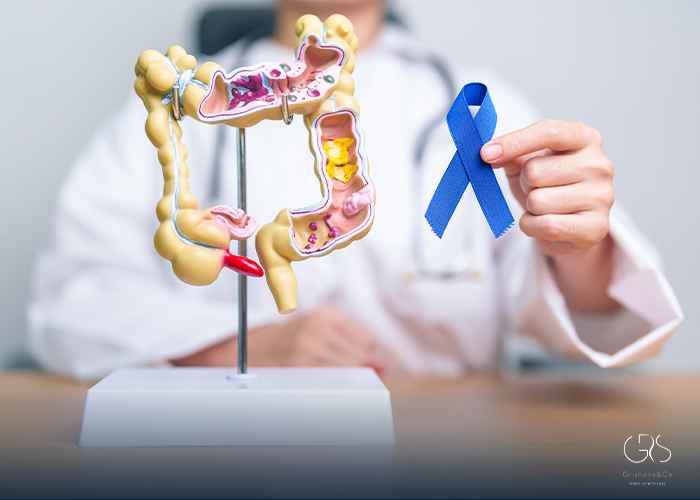Understanding Hypothyroidism is crucial as it involves an underactive thyroid gland that hampers the production of thyroid hormone, essential for regulating metabolism. Familiarizing oneself with the symptoms, causes, and management of this condition is vital in achieving prompt diagnosis and effective treatment.
Symptoms and Causes
Symptoms of hypothyroidism can be subtle and often develop slowly, making the condition challenging to diagnose. Common symptoms include fatigue, weight gain, intolerance to cold, muscle weakness, and depression. The causes of hypothyroidism can vary, including autoimmune diseases such as Hashimoto’s thyroiditis, where the body’s immune system mistakenly attacks the thyroid gland. Other causes may include medical procedures like thyroid surgery or radiation therapy, congenital thyroid conditions, and medications like lithium and amiodarone. In some cases, problems with the pituitary gland can also lead to hypothyroidism.

Autoimmune Disease and Medical Procedures
Autoimmune diseases, such as Hashimoto’s thyroiditis, are the most common cause of hypothyroidism, accounting for a large portion of cases. The body’s immune system mistakenly attacks the thyroid gland, leading to inflammation and reduced hormone production. Medical procedures such as thyroid surgery or radiation therapy for the treatment of hyperthyroidism or thyroid cancer can also result in hypothyroidism due to the reduction in the functioning thyroid tissue.
Congenital Thyroid Conditions and Medications
Some individuals may be born with congenital thyroid conditions, where the thyroid gland is underdeveloped or absent, leading to hypothyroidism from birth. Additionally, certain medications like lithium and amiodarone can interfere with thyroid hormone production, contributing to the development of hypothyroidism.
Pituitary Gland Problems and Risk Factors
Issues with the pituitary gland, which produces a hormone that signals the thyroid to produce thyroid hormones, can result in secondary hypothyroidism. This occurs when the pituitary gland fails to produce enough thyroid-stimulating hormone (TSH), leading to reduced thyroid hormone levels. Risk factors for hypothyroidism include being female, age over 60, a family history of thyroid disease, and autoimmune conditions.
Treatment
Hypothyroidism cannot be cured at present, but it can be managed with medication. Treatment involves the use of medication to replace the hormones that the thyroid is not producing1. The most common medication prescribed for hypothyroidism is levothyroxine, a synthetic version of the hormone thyroxine, which helps restore the body’s metabolism, temperature, and energy levels12. Patients typically take this medication once a day, in the morning and on an empty stomach, and usually continue treatment for life1. Regular blood tests will be needed to monitor thyroid hormone levels, and some researchers are exploring the effectiveness of combining levothyroxine with other medications12. Ongoing studies are aimed at determining the best time to start treatment for low thyroid levels1. It’s important to discuss any questions or concerns with a healthcare provider to ensure optimal management of hypothyroidism1.
How to Prevent Hypothyroidism-Related Conditions
When it comes to promoting thyroid health and preventing hypothyroidism-related conditions, incorporating specific thyroid health foods into your diet can be beneficial. Foods such as iodine-rich seaweed, selenium-containing brazil nuts, and omega-3 fatty acid-rich fish have been shown to support thyroid function. By including these thyroid health foods in your balanced diet, alongside maintaining a healthy lifestyle with regular exercise, you can potentially reduce the risk of developing certain thyroid conditions and promote overall thyroid health.
(Uncover the numerous brazil nuts benefits in my informative article.)

Living With Hypothyroidism
Living with hypothyroidism requires ongoing management, including regular monitoring of thyroid hormone levels and adherence to medication. It is essential for individuals with hypothyroidism to be well-informed about their condition and to work closely with healthcare professionals to ensure optimal management and overall well-being.
Conclusion
Hypothyroidism is a complex condition with various underlying causes, requiring careful consideration of symptoms and proper medical intervention for effective management. By understanding the symptoms, causes, and treatment options available, individuals can take proactive steps to address hypothyroidism and lead healthier lives.
Sources
- American Thyroid Association, Hypothyroidism (Underactive)
- Mayo Clinic, Hypothyroidism (Underactive Thyroid)
- Medline Plus, Levothyroxine










